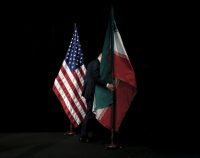
How the War in Gaza Revived the Axis of Resistance
On January 12, the United Kingdom and the United States launched military strikes on Houthi targets in Yemen. These attacks were a response to the group’s assaults on commercial shipping in the Red Sea, which have disrupted global trade. The Houthis’ actions briefly made them the most prominent members of a military coalition that has become increasingly active across the region following the assassination of Saleh al-Arouri and other Hamas leaders in Beirut on January 2. For following their deaths, Hezbollah’s commander, Hassan Nasrallah vowed retribution and declared that the fight against Israel required nothing less than an “axis of resistance”.… Seguir leyendo »








